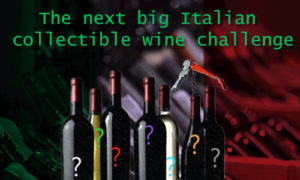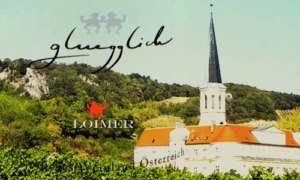Hugh Johnson re-writes his fascinating Story of Wine, from Noah to now
Story of Wine
The history of wine is a long one, and it takes a writer of Hugh Johnson’s stature to bring it to life. The Story of Wine is now available in a re-issued and updated version, plus Johnson’s view on the changes in the global wine world in the past 30 years.

I hear the rain beginning to fall. Autumn is coming, and, well, I feel particularly lockdown-ed. I listen to interviews with the distinguished Hugh Johnson – who describes himself as an enthusiastic wine and jazz lover – who writes about wine, life and gardening. Hugh Johnson is being interviewed about the 2020 update and re-issue of his classic book the Story of Wine by the Academy du Vin.

Wine is not just a drink with a cork
Originally written as part of Hugh’s historical research for the Channel 4 wine series, Hugh Johnson had done so much research, infinitely more than he could use, that he concluded: “there is a book in there”. The book took wine to a more popular level, not only de-mystifying it, but making it sound utterly delicious. There is a lot of memory and sentiment about wine.
According to Hugh the story of wine is still relevant today and continues where the first book ended 30 years ago by tuning in on global warming. “The wine world changes all the time, global warming is the story still to come”. Par example, Torres in Catalunya is very concerned about vintages coming earlier. That’s why Torres is buying soils on higher altitudes, or further north or researches other grape varieties who can withstand heat or drought better.

Wine is also one of the most ancient drinks
You can trace the history of wine through documents. The church has a bewildering amount of records. You have to remember that after the Greek and the Romans the role of administrator or scrivener was taken over by the Catholic Church. There was not a big empty space after the Roman Empire collapsed around the 4th century. Its place was taken by the church. They kept things similar to the Roman organisation and took over the business of growing grapes and producing wine.
Some centuries later the monks were very keen not only to have wine but good wine, to use it for their religious rites and mass, They tried to make viticulture better. Burgundy is one example and Rhine wine in Germany, where the Cistercian monks got going. They made fortunes, not just with wine, with trading, sheep rearing, agriculture and mining. One could call them the precursors of multinational companies. That’s why the story of wine, if you find a way into this, is fascinating.
There is no other substance that puts time and place so together as wine does
Wine is absolutely specific about a certain place and a certain time, The wine’s personality or, as you like, DNA depends on that. Great wines leave you with question marks. They want to be talked about. What is relevant is what it tastes like, what it is called, where it comes from, how you can enjoy it.

Tasting a Stein Wein from 1540, tasting history in a bottle
The oldest wine Hugh Johnson ever tasted was an odd 450 years old, a grand survivor. A wine made even before Shakespeare was born. This German Steinwein made in 1540, a very famous sweet wine vintage, was remarkably still alive. That’s an incredible thing.
The wine, made of grapes that were cultivated during the warm, sunny summer of 1540, had not died. Even though, the wine stayed about 200 years in a big barrel and then in a bottle. The energy of that vintage was still there. At this age, wine tends to go its own way and a lot depends on the cork. After opening it still had the spirit of wine.
That’s unique to wine. There is no substance in the world that can store energy like that. That’s an incredible feat. After pouring the wine very rapidly went off and soon turned to vinegar. There is still one bottle left of the 1540 Stein Wein, which can be found in Würzburg, Bavaria.

Hedonism is so important
Wine is all about pleasure. The pleasure of a lovely taste. If it is wine and food or the wine itself. There is information contained in wine. There is an intellectual process: is it Bordeaux, is it part of Bordeaux? Can I compare this wine to another Bordeaux of the same year from another producer? Can I compare this wine to other vintages of the same producer?
There is a sort of pleasure drinking wine with its history
You are tasting history with a glass of wine. “What I explain in my book is the history of wine. All the way how wine is coming to be what it is, how it got its identity in all its different forms.” Very fine wines come from vineyards where everything is just right. It is precise. The exactness and accuracy of expression mark the wine. If you alter any part of the equation, the wine is not the same.

Also in the wine trade, there are changes
One of the changes, with let’s say the situation 30 to 50 years ago, is the rise of what Hugh Johnson calls the New World, Australia and California par example. Sales from the early 1970s on were based more on private initiatives – such as wine clubs – than the trade. The trade was more like “Who wants to drink that, those wines of the New World?”
At the time we did not ask winemakers which grapes are you growing. In came Jancis Robinson, she wrote a book called Vines, Grapes & Wines. Back in the mid-1980s, she thought about the flavours of grapes. It was obvious for Jancis that grape varieties were going to become increasingly important. According to Hugh nobody was aware of the enormous variety of grapes in let’s say Italy and so on. “I wasn’t aware of them. I was talking about places, rather than the fruit. That what Jancis did was a revolution.”

Advice for people who would love to write about wine
Hugh always asks do you do it, do you write? Unless you do it, it doesn’t happen. “My style is based on being attractive to readers. Any writer has to think about the reader. Far more than to think about the subject. You are talking to somebody. When I am writing to you, you’re my friend.”
You have to think about how you can keep your readers entertained. He thinks wine writers should be bolder with their metaphors. Sometimes, Hugh will compare wine to a jazz trumpet solo because he is a big fan of jazz too.
There are so many stories to tell, involving fascinating characters. It’s like writing a letter in the old days, that kind of one to one seems to work. See the book as my letter to you. In the end, it became a long letter about the story of wine.
Over his 60-year career in wine, Hugh Johnson wrote many a book. His story of wine is now available in a re-issued an updated version. It is still about the history of wine and how wine became the global phenomenon it is today but goes further with Hugh’s view on the changes in the wine world in the past 30 years.
The above article is a compilation and Winejus’ interpretation of several interviews with Hugh Johnson about the story of wine and a webinar.
Hugh Johnson’s interviewed by Jason Solomons on 23 September 2020 about ‘The Story of Wine’. Starts around 2 hrs 12 minutes. https://www.bbc.co.uk/sounds/play/p08qf4rd
Hugh Johnson profiles a 1540 Steinwein – https://www.bbc.co.uk/sounds/play/b09cmbdh
The Story Of Wine with Hugh Johnson on The Wine Show on 17 September 2020 – https://youtu.be/1BCwUa6Rpok
Napa Valley Wine Academy Webinar with Wine world legend Hugh Johnson on September 26 at 11:00 a.m. PDT.


